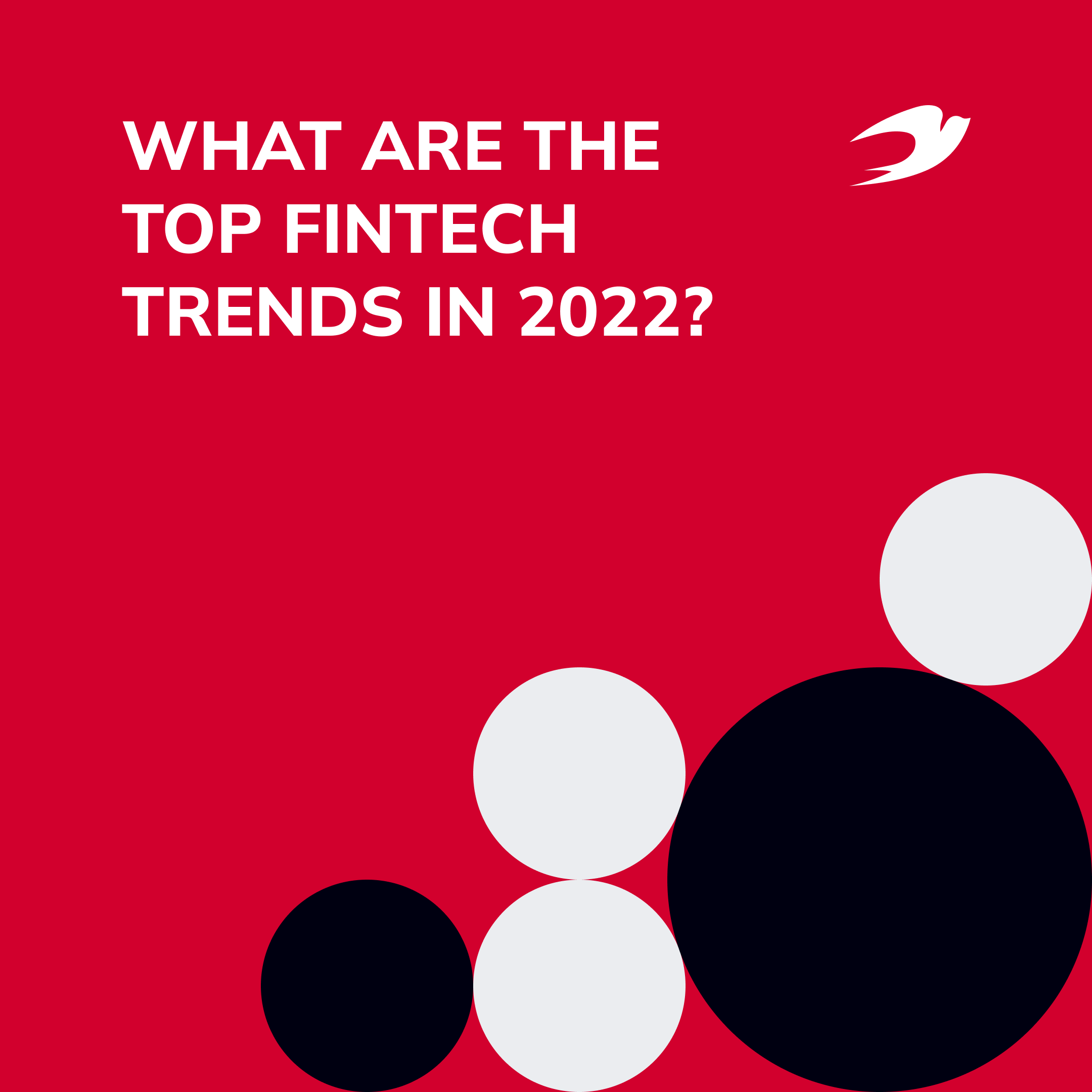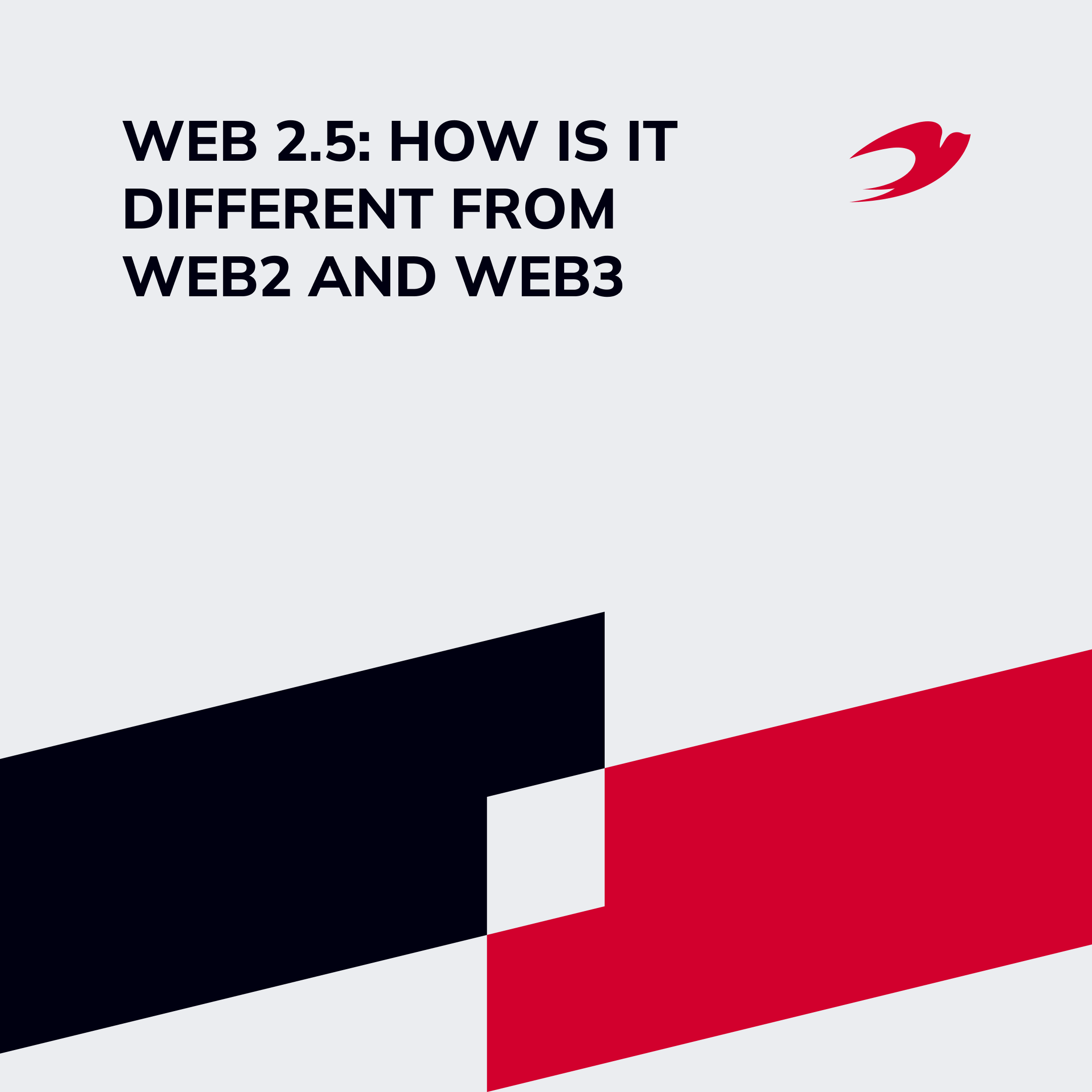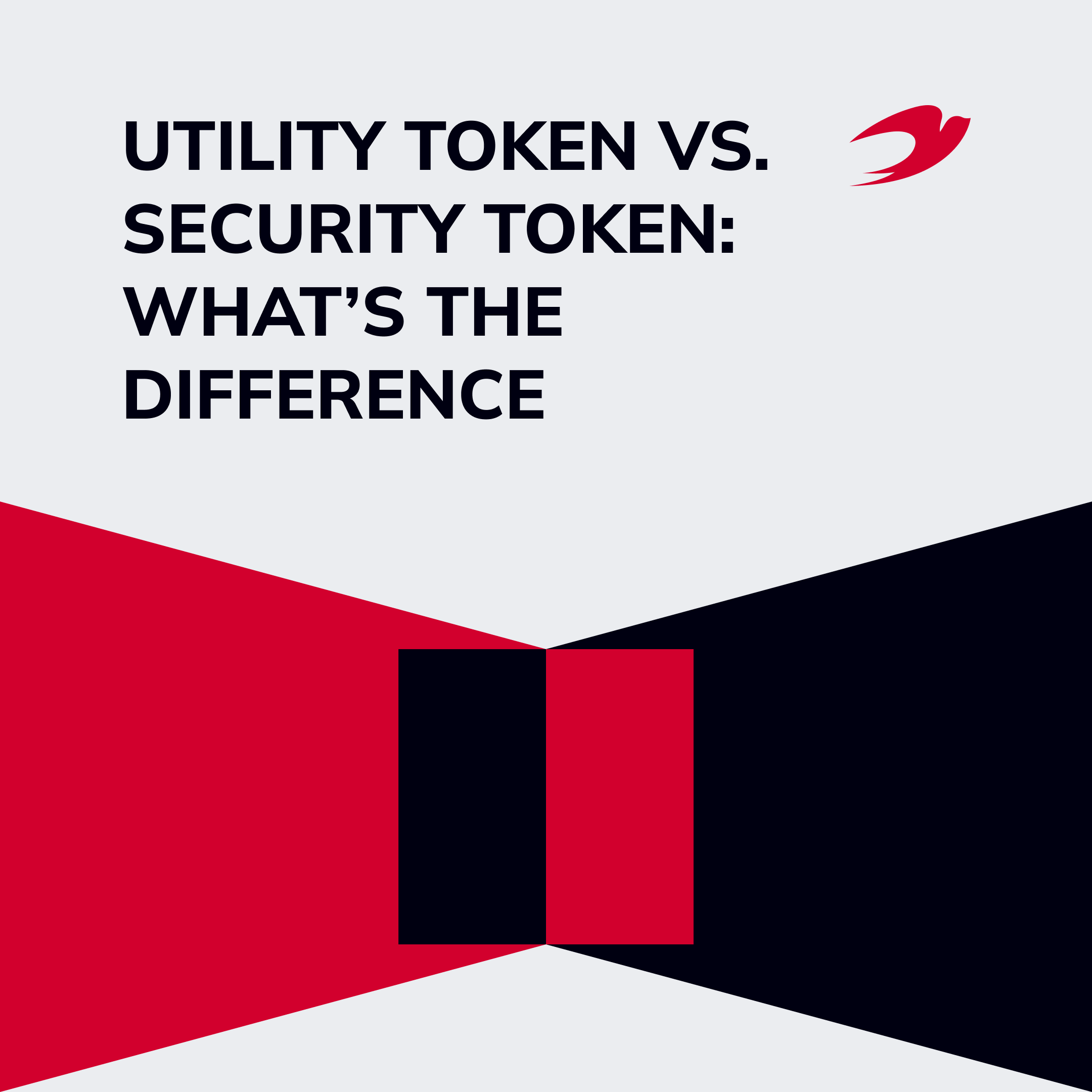It’s incredibly interesting to watch how the financial industry is changing. Over the past decade, there have been so many technological breakthroughs that have influenced our habits, given us more opportunities, and raised fintech to a new peak. Based on the latest research and personal observations, we have prepared for you a detailed article on top fintech trends in 2022.
Table of contents:
The biggest challenges for Fintech 2020-2022
No matter how promising the industry is, there are always challenges that have to be overcome. Fortunately, fintech is one of those industries that Covid-19 has not critically affected, although there are still some consequences. In fact, the financial industry is experiencing the same difficulties that have been in the spotlight in recent years. Among them are the following:
- Outdated technology. Many traditional financial institutions still use outdated technology and business models. The competition is steadily growing. As clients, we expect more, but many companies try to compete with fintech startups using outdated technologies that hinder the development of the entire industry. The pandemic has accelerated digital transformation, but it takes time and requires internal changes within the company, including customer interaction models and business philosophy.
- Regulations. Since fintech uses many online technologies that are designed to speed up the processes of interaction with clients and making payments, the importance of data confidentiality is growing. A new approach to financial management requires new laws. The first Payment Service Directive laid the foundation for the rapid development of the fintech industry in Europe back in 2007. It also laid the legal foundation for SEPA (Single Euro Payments Area). Since then, legislation related to fintech has been constantly evolving and strives to increase its value for customers in order to compete with traditional institutions. The achievements of recent years are GDPR, PSD2, etc.
- Secure data storage. Secure storage of user data is another challenge modern online businesses. Leakage of such data as payment card numbers, passwords is simply unacceptable. Fintech companies do their best to prevent this, but failures happen. Especially when users want to see transparency in their operations, they need a solution that combines transparency with security. Therefore, the question of secure storage and transfer of user data remains open.
- User trust. Following from the previous point, this one is equally important. If financial institutions don’t provide clients with the necessary level of services and threaten data security, then clients stop trusting them. Bank security, for example, is one of the most important selection criteria for clients. And with more and more data being transferred online, cyber attacks have become more frequent lately. According to Security Intelligence, the average cost of a data breach in 2019 was $3.92 million, and according IBM, remote work has increased the average cost of a data breach by $137,000.
Realizing all these difficulties, financial market players continue to improve the quality of their services and offer new solutions based on the latest technology trends.
Digital Banking and Neobanks
More and more banks are switching to the digital-only banking model, which means that all services are provided online and there is no physical representation of the bank. Such banks have many advantages, both for the business itself and for customers. As a client, you don’t have to stand in queues, visit a bank to open an account, sign a bunch of documents, instead, you can pay bills quickly, have convenient expense management, quick balance views, and real-time analytics. All operations take place online and mostly automatically. This means that the banks themselves can save money on office and staff costs. Chatbots, mobile POS terminals, and new underwriting models allow you to process user requests automatically in real-time.
Read more about banking technology trends here.
You should know that there is a difference between digital banks and neobanks. Digital banks are often the online arm of a traditional bank, while neobanks are completely digital and independent. Users around the world point to the convenience of neobanks, primarily related to personalized customer experiences. You can see your balance in real-time, keep an effective record of personal funds with no monthly fees or withdrawal costs.

Trying to stay competitive, some traditional banks are partnering with various fintech platforms to provide more innovative services. PwC’s poll found that among companies looking to partner with other sectors for growth, 47% are likely to partner with fintech companies.
Open Banking
In Europe, the Revised Payment Services Directive (PSD2) laid the foundations for a new banking model designed to stimulate banking innovation. We are talking about open banking. Open banking allows banks to exchange data with third-party service providers at the request of customers through Open APIs. Thus, fintech companies and banks can interact more closely and offer more personalized and comprehensive offers for users of financial services.
The number of open banking users worldwide is expected to grow at an average annual rate of nearly 50 percent between 2020 and 2024. Open banking can become an effective tool for cooperation between banks and fintech companies in increasing the variety and quality of services in the market. Thanks to open APIs, banks can create service marketplaces for their clients. Users, in turn, gain access to more personalized and beneficial services. It is important to note that data can only be opened with the consent of the user, therefore open banking does not contradict the principle of data privacy.
Decentralized Finance (DeFi)
Talking about top fintech trends, we can’t miss DeFi. Although decentralized finance belongs to alternative financial tools and is associated with the crypto market, experts point out that the future belongs to decentralization. As of October 2021, the total value locked in DeFi protocols has reached $99B.
DeFi is represented by various financial solutions like lending, exchanges, payment applications, etc. which operate without a single central authority. All management in DeFi takes place through self-executing smart contracts. Any Internet user can interact with the DeFi ecosystem. This reduces entry barriers to using financial services. In addition, DeFi platforms are open source, so they are more credible in the eyes of users.
As cryptocurrencies become more widespread and more companies accept them as a means of payment, the role of decentralized finance is also growing. DeFi today simplifies interoperability between different blockchains, taking the crypto space to a new level that is accessible to a wider range of users. There are many DeFi projects on the market that can compete with centralized financial solutions.
Read our recent article Where to start implementing blockchain
Big Data
According to Statista, the global big data market is forecasted to grow to 103 billion U.S. dollars by 2027. Today’s finance companies strive to provide a more personalized experience for their customers, so they use customer data to deliver more tailored offers at the right time.
Financial companies try to collect as much information about clients as possible to draw up a detailed portrait of each customer and build an effective communication strategy. Also, by analyzing data, firms can predict future events, personalize offers and thereby increase customer loyalty. Thanks to working with big data, financial companies can segment customers, receive user insights in real-time, predict which services will be of interest to customers in the future, and optimize prices. To summarize, we can say that big data allows you to transfer your business to a client-focused model in order to achieve great results.
But the more data, the more difficult is to effectively manage it while ensuring the security of customer information. Therefore, the financial industry has been investing heavily in data collection, and processing technologies for the past ten years: data warehouses, analysis tools, data visualization tools, forecasts based on current information. User expectations have changed, competition is intensifying, so data needs to be processed quickly and qualitatively to attract and retain customers while maintaining security. The fintech industry will continue to work on this in the coming years.

AI-based solutions
The use of AI-based technologies in finance has already become more than just a trend. Advanced artificial intelligence algorithms can automatically determine if a client matches a particular segment and launch a chain of the most appropriate actions. Using a set of preprogrammed criteria, artificial intelligence improves the efficiency of daily operations and the quality of the user experience. Financial institutions use AI-based solutions to build chatbots and implement fraud and risk detection features. According to Finivi, AI is projected to reduce bank operating costs by 22% around 2030. And according to a Juniper Research report, chatbots will save $7.30 billion worldwide by 2023.
Artificial intelligence minimizes the likelihood of human error, which is why more and more companies are focusing on process automation. Also, AI processes information much faster and is able to provide instant solutions, which ultimately helps to reduce the costs and risks. Artificial intelligence is one of the top fintech trends in 2022, especially when it comes to neobanks, where user experience comes first.
The development of AI-based solutions is gaining momentum, becoming more and more complex. For example, there are systems for the automatic assessment of the best directions for investment, assistant systems for creditors and bankers, which make it possible to automate both routine administrative tasks and more complex analytical ones. Experts predict that artificial intelligence will become the number one trend in the coming years.
Cybersecurity
Financial systems need to be secure to inspire user confidence. Cyber threats can have dire consequences and further loss of reputation for a financial company. Problems arise for many reasons, the main of which is cooperation with third parties, in the reliability of which you cannot be sure, the active use of mobile technologies and online data transmission, a growing rate of hacker attacks. According to Forbes, every minute, $2,900,000 is lost to cybercrime. Therefore, cybersecurity is one of the main directions for the implementation of new technical solutions.
Among the main areas of work on cybersecurity for fintech companies are the following:
- Transaction security, including transaction intelligence risk control and secure identity authentication.
- Data security management, including personal data protection.
- Cybersecurity, including security service and security technical tools.
However, improving the quality of the security system is not only related to technology. Many fintech companies are working on internal security and threat response strategies, as well as raising awareness among both employees and customers. Fintech companies like no other segment are connected with money, which makes them an especially attractive target for cyberattacks. A recent study shows that banks are investing about 70% of their funds in developing and implementing security strategies. Realizing this, the financial market in recent years has been investing a lot in the development of security systems, including blockchain solutions.
WealthTech as one of top fintech trends in 2022
WealthTech brings together wealth and technology to deliver better financial management solutions. During the lockdown, this direction of fintech received a new round of development. According to Fintech Global, funding for WealthTech in the first quarter of 2020 has reached $1.7 billion. These are impressive numbers that show the development prospects for WealthTech. Many entrepreneurs realized that it is possible to successfully run a business online, so new digital services for managing personal and corporate finances have appeared. Experts predict that in the near future, the use of such advanced technologies as AI and Big Data will give us even more effective financial solutions.
Among the most popular Wealthtech services are Robo-advisors. These are automated platforms that use algorithms and machine learning to help investors make important financial decisions. Robo-advisors provide users with recommendations based on market data and the user’s personal goals. Perhaps, in the future, such programs will be able to completely replace financial advisors, but for now, they just offer additional opportunities for investors.
Other interesting solutions from Wealthtech include digital brokerage platforms that provide easier access to information about the stock market, micro-investment platforms that allow you to regularly invest small amounts of money without having to pay a commission, and others. Since the goal of the fintech industry is to create new, simpler and more profitable financial solutions, WealthTech aims to make money management more accessible and convenient for everyone.
Putting it all together
Experts predict a bright future for fintech, despite all the challenges. The financial market is changing, it is a fact. The industry is inextricably linked to online and technical progress, therefore it uses the latest technologies such as blockchain and AI to create more profitable financial solutions. Security is still the main risk area for financial companies, so the development of security strategies is firmly entrenched in the ranks of the top fintech trends in 2022. Anyway, current trends show that the industry continues to develop and we should expect new breakthroughs in the near future.




